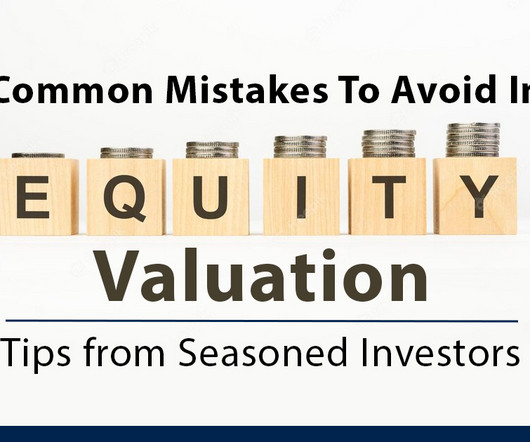Valuing a Holding Company: A Comprehensive Guide
Equilest
AUGUST 28, 2023
For further insights into the complexities of valuing holding companies and to explore the finer points of financial analysis, market conditions, and valuation methods, continue reading our comprehensive guide. Holding companies, also known as parent companies, own and control other businesses through stock ownership.











Let's personalize your content